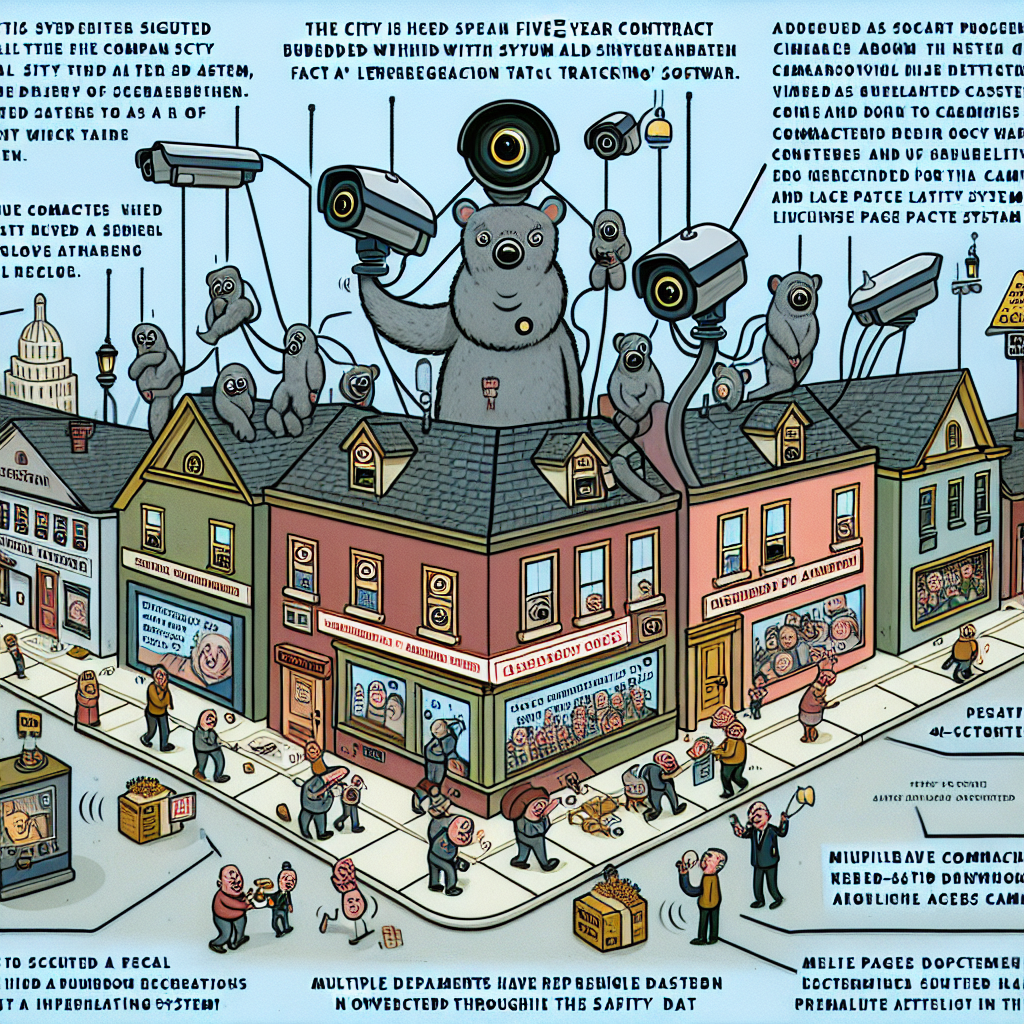“Chesterburgh’s Secret Surveillance Deal: $2.25M Contract with ClearSight Raises Privacy and Transparency Alarms”

"The City of Chesterburgh agrees to a five-year contract with ClearSight Analytics for real-time surveillance data aggregation, with an annual cost of $450,000."
Last month, the Chesterburgh City Council approved a contract that, until now, had flown largely under the public radar: a $2.25 million, five-year agreement with ClearSight Analytics to install and operate a real-time surveillance data system across town. The details—buried deep within a 42-page contract gained through a Freedom of Information Act (FOIA) request—reveal far-reaching implications for residents’ privacy and the city’s spending priorities.
The contract, signed April 12, authorizes ClearSight Analytics to deploy a network of approximately 75 interconnected cameras and sensors, connected to licensed facial recognition and license plate tracking software. While the city’s official statement frames this as a "public safety enhancement," the documents show that data will be accessible in real-time to multiple departments beyond law enforcement—ranging from parking enforcement to the new "Community Outreach" division.
I obtained the full contract through a formal FOIA request after noticing a single brief mention of the vendor in publicly available City Council minutes, which made no reference to the contract’s scope or cost. The first unusual line appeared under Agenda Item 5B: “Authorize contract with ClearSight Analytics.” No accompanying details were shared, and no public discussion was recorded in the minutes.
The contract language stipulates that ClearSight will manage a data aggregation platform capable of collecting, storing, and analyzing video and associated metadata 24 hours a day. The system integrates artificial intelligence algorithms for facial recognition and behavioral pattern detection. Data retention is authorized for a minimum of 18 months, with provisions for extension. Importantly, the agreement specifically excludes any requirement for public notification of surveillance zones, and “does not permit public access to data” under any circumstances.
This raises pressing questions about transparency and oversight. Chesterburgh law enforcement officials provided a statement emphasizing that the system “will be used solely to enhance safety across Chesterburgh neighborhoods,” citing recent upticks in burglaries and vandalism. Yet, the contract’s broad language on data sharing contradicts the narrow scope described publicly. Among authorized users are the Department of Public Works and the Finance Division, departments with no direct public safety mission.
The spending commitment is also notable given competing budgetary constraints. Chesterburgh faces pressing needs in public infrastructure and school funding. The contract’s annual $450,000 fee accounts for roughly 7% of the city’s typical discretionary budget—a sizable allocation to a single surveillance technology vendor. Documents reviewed show no competitive bids were sought, as the procurement was classified under an “emergency” exemption citing “urgent public safety needs,” despite no formal emergency declaration in the city.
Further investigation uncovered an annexed “Data Sharing and Privacy Protocol” included within the contract, a document that had not been released publicly. Its clauses permit ClearSight and its subcontractors to share “aggregated, anonymized datasets” with “approved third-party research institutions” and “technology partners” for “system performance evaluations.” The exact identities of these third parties remain redacted, marked "Confidential - Not for Public Disclosure." The lack of clarity around external access to resident data intensifies concerns.
Of particular concern is a clause gr
